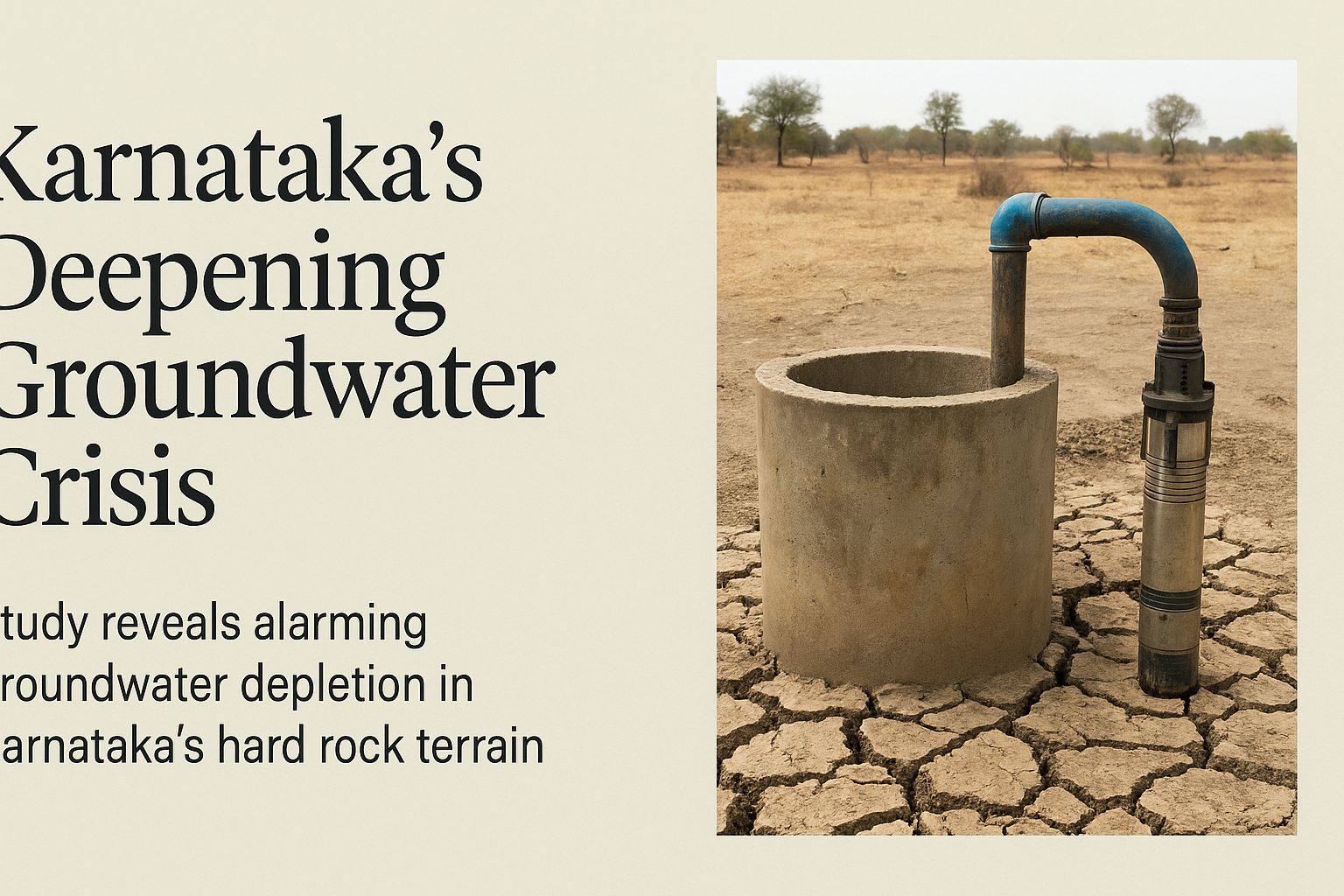Analysis of Microfinance and Rural Empowerment Initiatives
Introduction Microfinance has emerged as a vital tool for rural empowerment...

A recent study by the Indian Institute of Science (IISc), Bengaluru, and supported by Central Ground Water Board (CGWB), has flagged a severe groundwater depletion trend in Karnataka, especially in its hard rock terrains like Kolar, Chikkaballapur, Tumakuru, and parts of Bengaluru Rural. The crisis threatens agricultural sustainability, urban water supply, and ecological balance.
| Indicator | Status |
|---|---|
| Annual Depletion Rate | 1–2 meters in several districts, especially in eastern dry zones. |
| Geology Impact | Hard rock terrains with low storage capacity aggravate recharge limitations. |
| Borewell Failure Rate | Over 60% borewells in Kolar-Chikkaballapur have failed or gone dry. |
| Rainfall Dependency | High dependency on rainfall for recharge; erratic monsoons worsen conditions. |
| Overextraction | Groundwater is being extracted at 220% of recharge capacity in districts like Kolar and Bengaluru Rural. |
| Scheme | Features |
|---|---|
| Jal Shakti Abhiyan (Catch the Rain) | Encourages rooftop rainwater harvesting and watershed management. |
| Atal Bhujal Yojana (ATAL JAL) | Focused on groundwater management in water-stressed blocks including Karnataka. |
| Karnataka Neeravari Nigam Ltd. | Implements micro-irrigation and canal modernization. |
| Bhoojal App (Karnataka State) | Launched to digitally track groundwater levels. |
| Action | Purpose |
|---|---|
| Artificial Recharge Structures | Check dams, recharge wells, and tank rejuvenation. |
| Shift to Low-Water Crops | Millets, pulses, and agroforestry practices. |
| Urban Groundwater Regulation | Mandatory rainwater harvesting, monitoring by BWSSB. |
| Community Awareness | Participatory aquifer management and water budgeting. |
| Remote Sensing & GIS | Satellite tracking of aquifer stress and recharge potential. |
Karnataka’s groundwater crisis is a classic case of unsustainable development in hard rock terrains, requiring urgent multi-level action. Water governance reforms, traditional knowledge revival, and scientific aquifer mapping must converge for long-term sustainability.
“Discuss the causes and consequences of groundwater depletion in hard rock regions of India. Suggest a multi-pronged strategy for sustainable water management.”
(GS Paper I: Geography / GS Paper III: Environment)
0 responses on "Karnataka's Deepening Groundwater Crisis"